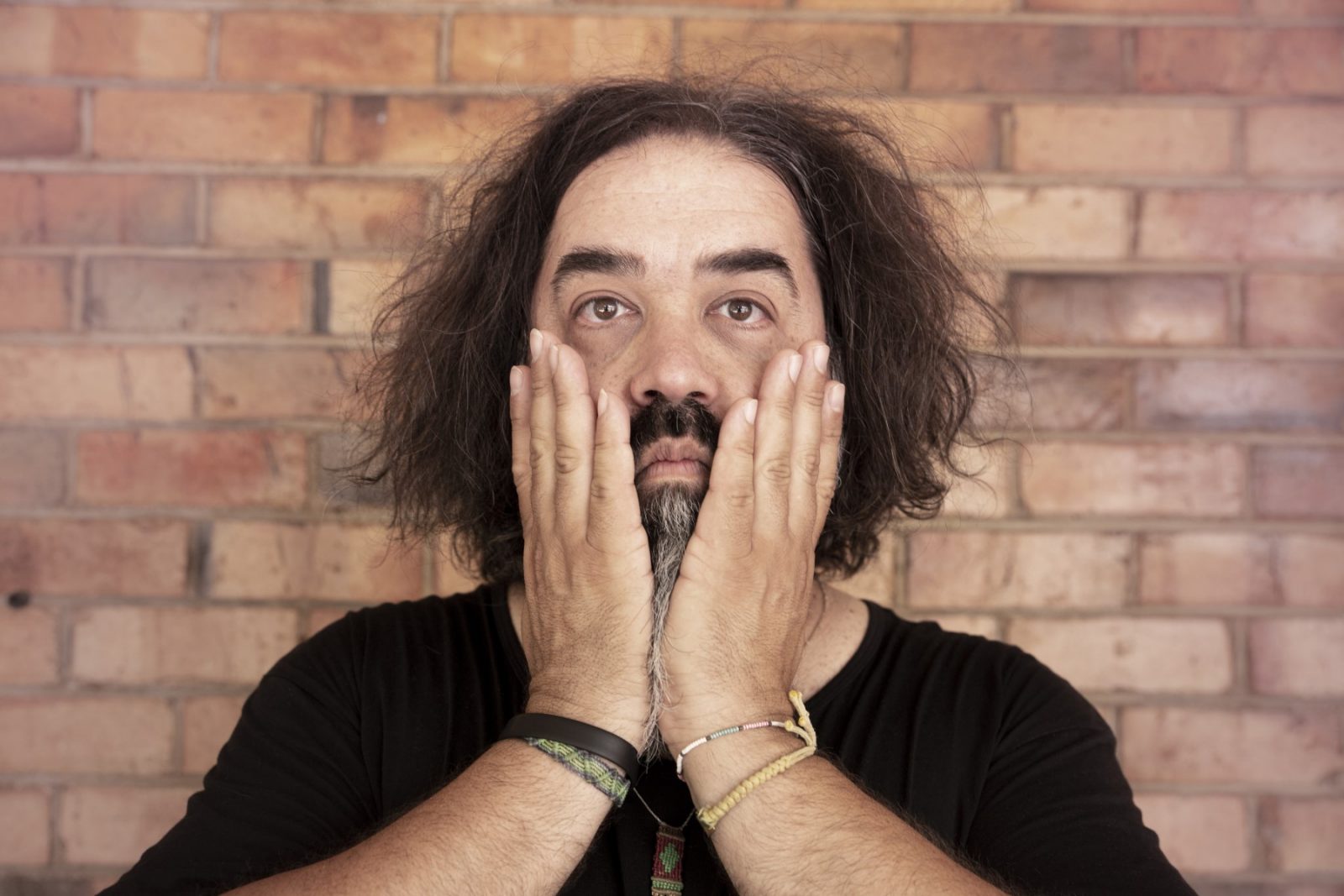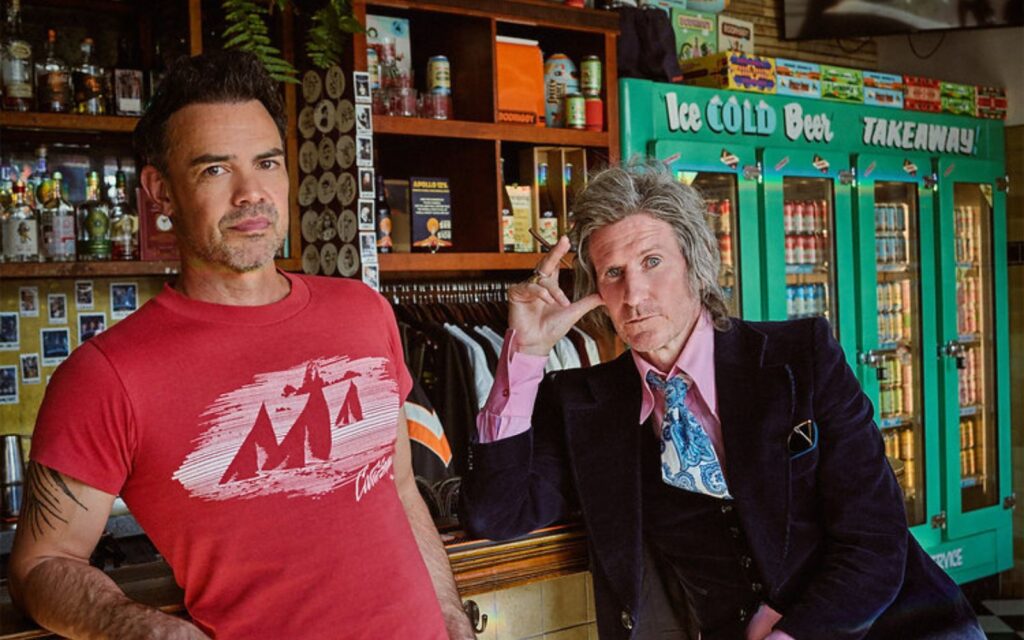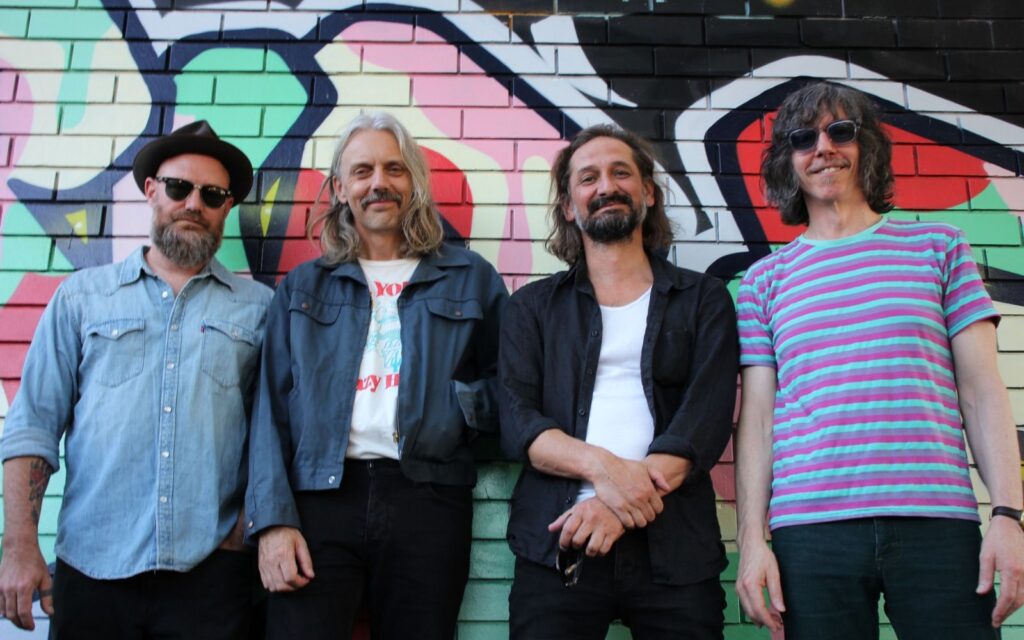The title of Abe Dunovits’ new record is not an admission of defeat.
Sigh of the Times was inspired in equal parts by personal tragedy and global emergency, but the Melbourne-based performer – who writes in both Spanish and English – still conveys a sense of optimism.
Dunovits recorded Sigh of the Times in his Carlton home during the first half of 2020. He started work on it before the coronavirus made home recording a necessity, but completed the bulk of production during the ensuing the lockdowns.
The songs don’t directly address the virus – there are no paeans to Brett Sutton or face mask PSAs – but it is awash with songs of protest, heartache, and metaphysical contemplation.
“I feel it’s a bit premonitory. Well not premonitory, but maybe a lot of people felt like something was happening, something ominous was about to happen,” Dunovits says.
Sigh of the Times features a number of protest-oriented songs, including the first single ‘Todes Unides’, the title of which translates to ‘all united’. The last couple of years have also been a time of significant personal upheaval for Dunovits, which is reflected in songs such as ‘Last Time’ and ‘Barro y Marfil’.
“A lot of the songs reference this journey with my dad who had cancer,” he says. “That’s a long story, but pretty much I had to take care of him the last two years. That culminated in an operation and then going into care for dementia and then passing away around June. It was a very tumultuous time for me on a personal level.”
The bilingual ‘Quiero Talk’ concerns the prevailing climate emergency while ‘Todes Unides’ is one of a few songs that salute the rise of progressive protest movements. Environmental themes have appeared in Dunovits’ songwriting in the past, but he’s recently been inspired by the example of teen climate activist Greta Thunberg.
“I’ve always been aware of that – the actions of individuals on a large scale with what’s really needed,” says Dunovits. “But more so now because we can see the effects of what we do to the earth, like overconsumption and commercialism – overconsumption of plastic and you name it.
“The songs are just a comment on what’s happening these days. I think [it’s a] preoccupation that we all should be having.”
In this sense, Dunovits believes these are universal themes and not representative of a particular political point of view. We all depend on the planet for survival and so we should all be concerned for its welfare.
“I’m not really preaching about it. It’s just a comment,” he says. “It’s almost like I’m saying it to myself as I say it to other people, just to be aware of those things.”
Dunovits was born in Argentina, but moved to Spain at a young age. He’s lived and worked in Australia since 1989, initially settling in Perth. It’s there that he founded the alt-Latin rock group Funkalleros in 2004. The band has released three LPs, Funkalleros (2005), Casserole of Humanity (2008) and The Spirit of Lullabop (2010), as well the EP Estrellas del Mar in 2017.
In 2012, Dunovits travelled to New York to record the solo album, Corazon de Nueva York, with help from a number of Latin musicians from Australia, America and the Dominican Republic. Sigh of the Times is significant for being the first solo album on which Dunovits wrote, recorded and played everything.
It’s a no less diverse collection, mind you, comprising everything from Spanish rumba and flamenco to reggae, blues, Anglo-rock and pop styles and protest ballads. Dunovits has long used music as a means of staying connected to the culture and traditions of Argentina and Spain.
“Argentina has a long tradition of guitar music and so I grew up with that, plus all the Latin music that gets filtered through like salsa and music from other countries in Latin America,” he says. “On top of that there was this ‘60s, ‘70s, ‘80s movement, a Latin movement, which is what’s called commercial salsa music, and then on top of that there’s the national rock of each country; Argentina has its own rock movement, so I grew up with all that.
“And then on top of all of that there’s the music – not only rock, but jazz, blues, et cetera – that comes from Anglo-Saxon countries like America and England. So I grew up with all that, and then living in Spain I got highly influenced by the music of Spain like flamenco and all the other folk music from Spain.
“That affects my playing, because I learned to play guitar in Spain, so the influences of classical guitar music and flamenco music and all the different fusions with flamenco, rock, pop – it all gets filtered through.”
Sigh of the Times is out now. For more from Abe Dunovits, visit his website.
Never miss a story. Sign up to Beat’s newsletter and you’ll be served fresh music, arts, food and culture stories three times a week.







